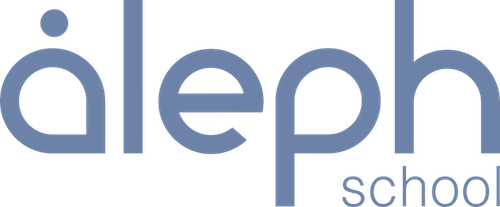Progressive
learning journey
Embark on an exciting educational journey with us! Our students follow a dynamic learning pathway designed to nurture a lifelong passion for learning while building essential skills for success in both academics and life.
At Áleph, we strive for so much more than just knowledge. We’re committed to shaping confident and responsible citizens, empowering them with innovative and critical thinking abilities. They do not just learn; they put their ideas into action and display empathy, unity, and a genuine love for serving their community.
Join us in cultivating a bright future for your child, where every day is an adventure in learning, growth, and making a positive impact on the world!
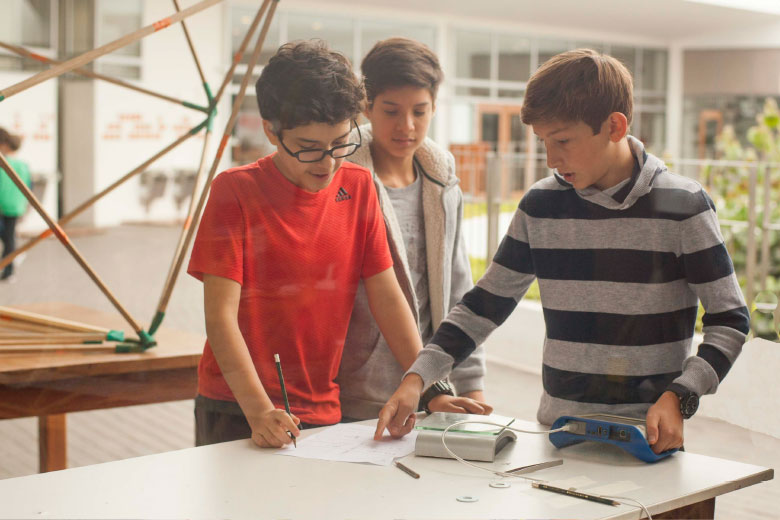
Áleph Early Years
3 year olds, Pre-Kinder and Kinder
Discover an innovative learning adventure at our Early Years campus! Immerse your child in creatively infused classrooms, workshops, and plazas, designed to inspire their unique journey of discovery. Our carefully crafted spaces blend fun with education, sparking curiosity and a genuine passion for learning. Captivating designs and high-quality materials make each day a thrilling exploration, nurturing essential skills for a successful future. Join us on this educational voyage, fostering a love for learning and a strong lifelong foundation!
In this phase of their educational journey, our students cultivate and develop these important skills:
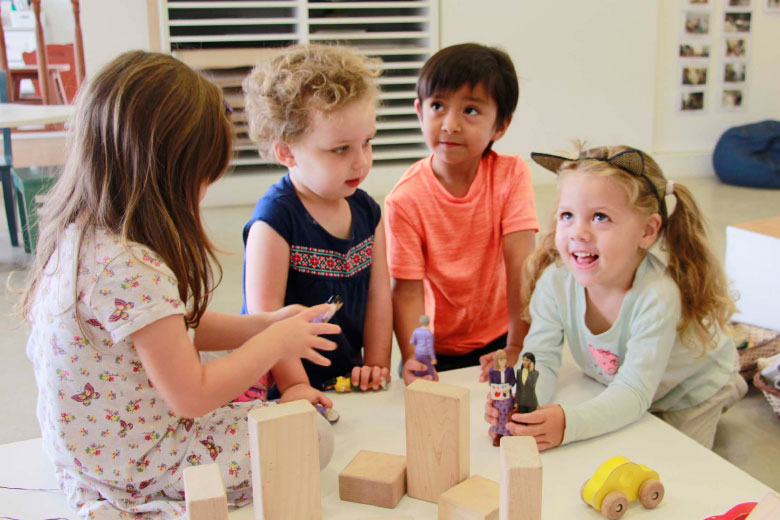
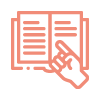
Reading and writing
They create a positive relationship with reading and writing which, in turn, becomes a solid foundation for their learning route in the first years of elementary school.
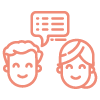
Communication skills:
Children listen, ask questions, explain, and confront ideas in order to negotiate and build on the ideas of their peers and to develop conclusions as a group.
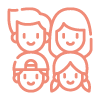
Personal and common wellbeing:
Children create agreements that aid the construction of friendly and positive group dynamics.
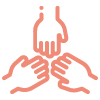
Collaborative work:
Our students work as a team in an environment that supports a culture of participation and collaboration.
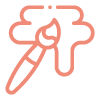
Creativity and expression:
Children develop their ability to express themselves while exploring their imagination through music, theater, and a wide range of workshops.
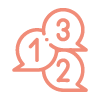
Mathematical and logical thinking:
Children develop key concepts they will need for more advanced mathematical thinking in elementary school.
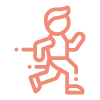
Psychomotor:
Children understand their bodies and develop motor skills through psychomotor workshops.
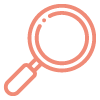
Interdisciplinary projects:
Children learn to solve relatable issues using a wide range of perspectives while testing their critical and creative thinking skills.
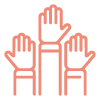
Autonomy:
Children progressively develop their autonomy and organization skills to contribute to the school community.
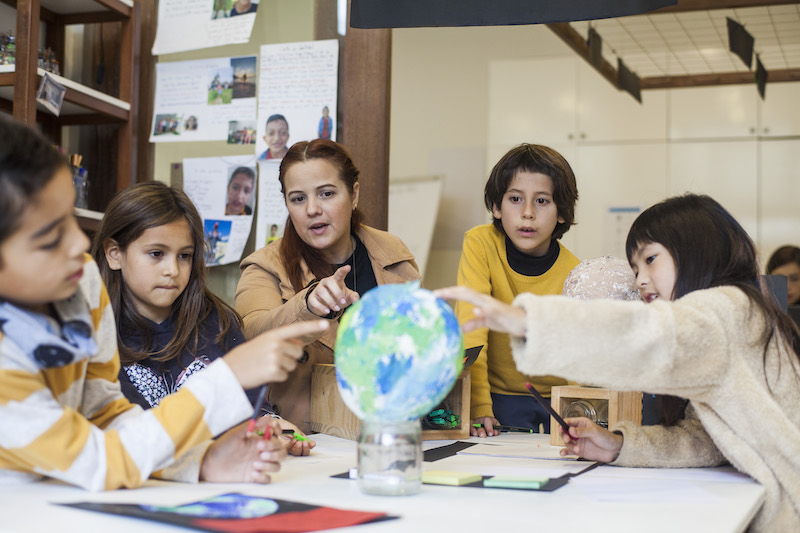
Áleph Elementary
1st-5th Grade
Step into the exhilarating growth and discovery phase at Áleph! Your child is poised to soar to new heights in this exciting second stage.
Innovative learning takes center stage here, encouraging critical and creative thinking while fostering collaboration and problem-solving. Young minds cultivate effective research strategies and master vital mathematical and communication skills, laying a strong foundation for their daily lives and future pursuits.
Witness your child’s remarkable skillset unfold, readying them to confidently conquer the world. Join us on this empowering journey, where each day presents fresh opportunities for brilliance!
In the next phase of their educational journey, our students cultivate and develop these important skills:
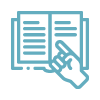
Reading and writing
Children consolidate their communication skills, using reading and writing as tools for expression, development and the construction of their arguments.
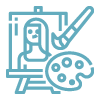
Social and natural sciences, humanities, art and culture
Students take on challenging issues and study them using a wide variety of sources, resources and instruments from diverse disciplines to then construct a critical point of view and new knowledge.

Process documentation
Children learn to record information from their research, as well as to show their findings in a clear and well-presented way.
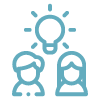
Participation and leadership
Students develop a diverse range of styles of participation and positive leadership skills which, in turn, enrich their growth and collective thinking as a community.
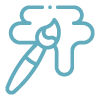
Expressive skills
Students deepen their exploration of diverse expressive languages through our theater, music and circus workshops.
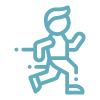
Physical education
Students develop their psychomotor skills and consolidate the physical foundation they will need for a broad range of sports through our physical education workshops and the use of our sporting infrastructure.
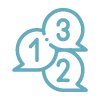
mathematics
Students consolidate their knowledge of key mathematical concepts and operations, using them to research and solve relatable and real-life challenges, while simultaneously boosting their divergent thinking skills.

Scientific method
Students approach testing and the production of knowledge in a playful and motivated way; using observation and measurement of their surrounding environment.
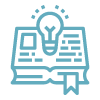
Reflection about the learning process
Students learn to observe how their thought process changes and how their knowledge acquisition evolves over time.
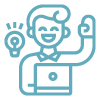
Creative risk taking
Students design pertinent solutions for the issues and problems they are investigating.
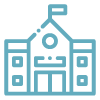
Global experiences
Students familiarize themselves with other cultures though the exchange of experiences and shared projects.
Áleph Middle School
6th Grade of Primary, 1st and 2nd year of Secondary School
Step into our dynamic Middle School world, where curiosity and creativity reign supreme! Students are at the core of their learning journey, engaging in an inquiry-based curriculum that ignites their imagination and active participation across diverse academic domains. It’s a playground for creativity and inquisitiveness!
In Middle School, we foster self-discovery, global understanding, and community engagement. Your child takes the reins, embracing autonomy and delving into subjects they’re truly passionate about. Excitingly, formal Design Thinking propels investigation projects, empowering students to design and innovate with purpose and precision.
In this phase of their educational journey, our students cultivate and develop these important skills:

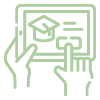
Deepening workshops
Students choose an area or discipline in which they wish to deepen their knowledge and comit to systematizing their learning.
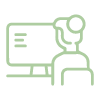
Autonomous work
A key part of their research and/or the learning process; autonomous work is used to build mathematical and literacy skills.
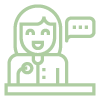
Coaching/mentoring program for students
Older students guide and befriend younger children in the Early Years, thus creating circular friendships and a welcoming sense of belonging at school.
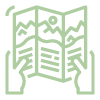
Camps, short trips and volunteering
Students participate in a broad range of activities that are proposed by the school in order to build empathy and knowledge about national and international realities.
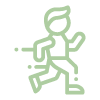
Sports skills
Students increase their opportunities to display physical skills through P.E. workshops, extracurricular activities, and competitive sports teams.
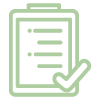
Prototyping
Students approach real world issues through the use of research and design thinking, proposing solutions to put their ideas into action, and evaluating their results.
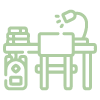
Self-evaluation and co-evaluation
Students are rigorous with the goals they set for themselves and use a continuous evaluation process using diverse tools. They design strategies, manage their learning process and responsabilities with autonomy. From this moment on, students are evaluated with grading. Through the use of rubrics, students learn to evaluate with the grading system. Through the use of rubrics, students learn to evaluate with the grading system.
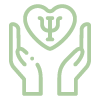
Self-esteem
Students build a solid feeling of self-worth through an understanding and how to care for their body, sexuality, and mental health.
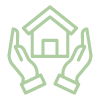
Organization and management of classrooms and school infrastructure
Students assume and put into practice everyday life responsibilities (cooking, cleaning, repairing, etc.).
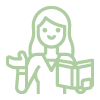
Rigor
Students face complex problems, they research, and they construct knowledge to meet the educational proposals.

Áleph High School
3rd, 4th and 5th Secondary
Embark on an extraordinary learning journey, where students aim for academic excellence while embracing self-discovery and personal growth.
With a solid foundation in citizenship, they now venture towards a thrilling future, engaging in captivating international experiences aligning with their purpose, vocational aspirations, future university pursuits, and the professional world.
In this dynamic phase, students not only acquire knowledge but also refine vital skills, shaping them into future leaders.
In this phase of their educational journey, our students cultivate and develop these important skills:
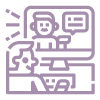
Design of pertinent strategies, services and products
In alliance with institutions, universities, private companies and public organizations, our students contribute to solve complex problems based on Design Thinking.
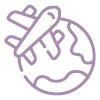
International study trips
Áleph gives its students the opportunity to have experiences that confront them with challenging problems and, through the exploration of different cultures, helps them design innovative solutions.
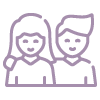
Life purpose
Students reflect on the impact they want to have as global citizens. They create a portfolio that systematizes their research and contributes to their decision making.
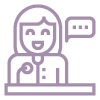
Aleph Student Council
Students participate, negotiate and commit to contributing – in a positive way – to the development of the concept of citizenship, both at school, and in the wider community (social responsibility). (social responsibility).
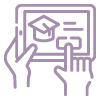
Citizens High School Dual Diploma
Students have the option to acquire a high school diploma from The United States of America.
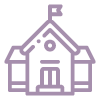
Exchange programs, internships and courses
Students participate in activities at companies and universities where they deepen their understanding of topics that are interesting to them and that they feel passionate about.
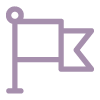
Hackathons or short-term challenges
Students participate in activities where they can investigate and design solutions “under pressure” to learn to manage their time and resources in a productive and efficient way.
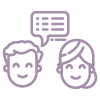
Social-emotional skills
Students consolidate the abilities that allow them to develop and sustain healthy and respectful relationships throughout the different contexts of their lives.
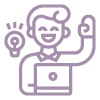
“Transcript” or digital portfolio
Through the Mastery Transcript Consortium, children build rigorous and interactive evidence of the interdisciplinary skills they have developed from their personal and academic life. This gives students a solid profile that they will be able to use when applying to universities around the world.
